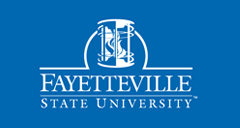Abstract
Given the exponential growth in international student populations in the United States, supporting cross cultural language learners (CCLL) in developing their self and co-regulated learning is highly important. This paper presents a conceptual framework on the value of feedback within self-regulated versus co-regulated environments, in the context of cross- cultural language learning. We use the term cross cultural language learners (CCLL) to refer to international learners, in particular from Asia. When exploring the issues of cross cultural language acquisition relating to logographic (Chinese) and alphabetic (English) languages, we examine the literature that support self and co-regulated learning within the frame of feedback. The results indicate that because CCLLs have unique motivational, behavioral and cognitive challenges, they may benefit less from the use of only one option between self and co regulation. A fusion of self and co-regulated feedback may transfer cross cultural language skills for CCLLs more efficiently.
Recommended Citation
Bawa, Papia
(2018)
"Self-Regulation, Co-Regulation, and Feedback in the Context of Cross-Cultural Language Acquisition in Higher Education: A Conceptual Approach,"
Journal of Research Initiatives: Vol. 4:
Iss.
1, Article 9.
Available at:
https://digitalcommons.uncfsu.edu/jri/vol4/iss1/9
Included in
Adult and Continuing Education Administration Commons, Bilingual, Multilingual, and Multicultural Education Commons, Curriculum and Instruction Commons, Disability and Equity in Education Commons, Educational Assessment, Evaluation, and Research Commons, Educational Leadership Commons, Educational Methods Commons, Higher Education Commons, Higher Education and Teaching Commons, International and Comparative Education Commons
